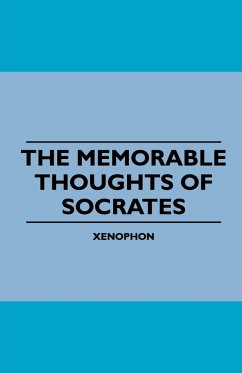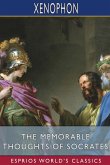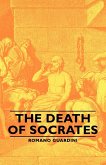This scarce book was first published in 1891. Edward Bysshe translates the Greek historian Xenophon's writings about his greatly admired contemporary and teacher, Socrates. It comprises the author's personal apologia of Socrates and is Xenophon's longest and most well known Socratic writing. Many of the earliest books, particularly those dating back to the 1900s and before, are now extremely scarce and increasingly expensive. We are republishing these classic works in affordable, high quality, modern editions, using the original text and artwork.
Hinweis: Dieser Artikel kann nur an eine deutsche Lieferadresse ausgeliefert werden.
Hinweis: Dieser Artikel kann nur an eine deutsche Lieferadresse ausgeliefert werden.








